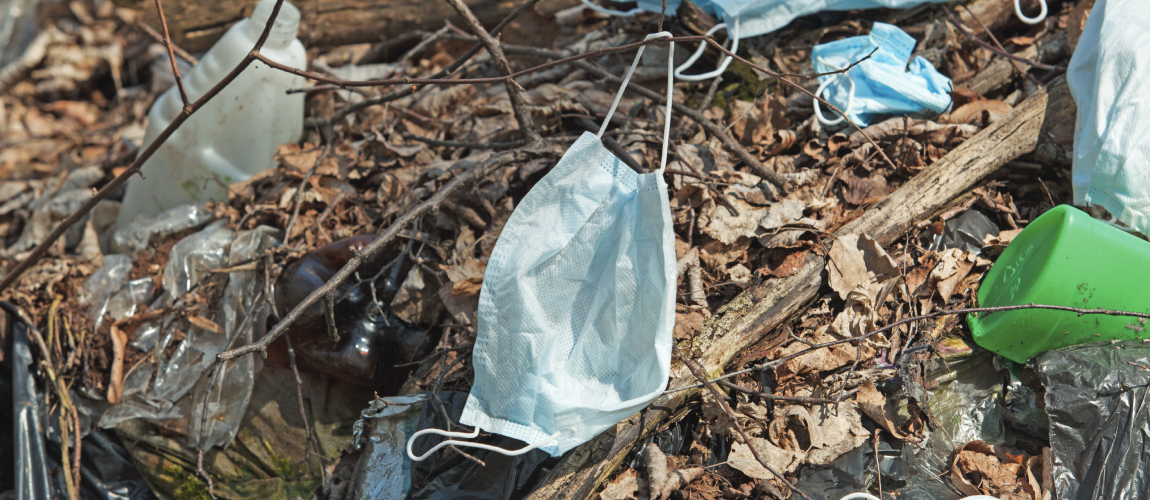
Following recent cases of COVID-19 community transmission in the Cayman Islands, face masks, sanitising wipes and gloves have made a sudden comeback. While these items have an important role to play in protecting people — especially healthcare and frontline workers — they also contribute significantly to plastic waste and pollution. Studies estimate more than 3.4 billion single-use masks and shields are thrown away globally on a daily basis as a result of the pandemic.
Thankfully, it is possible to adapt sustainable habits to align with public health best practices. Here are five tips for reducing your environmental impact while staying safe and healthy:
BIN IT
When the use of face masks and gloves first surged in our community last year, so did the litter. Local news and social media documented the rise in pandemic-related pollution on Cayman’s roadsides and shores. To protect our community and our environment, it is important for used personal protection equipment to be disposed of properly. Not only is littering illegal, but improperly discarding potentially contaminated items is also dangerous to public health.
SEAL IT
In addition to ensuring potentially hazardous waste — such as used masks, gloves, tissues, wipes and shields — end up in the bin, it’s important to make sure they stay there. Garbage bags should be tied tightly to avoid waste being carried away by the wind, and then placed in secure plastic bins or dumpsters to guard against scavenging chickens, cats or dogs.
USE CLOTH MASKS
According to the United States’ Centers for Disease Control and Prevention, cloth masks may be used to prevent community spread of infections by sick or asymptomatically infected persons in community settings. For better protection, make sure your cloth mask is multilayered, fits well around your mouth and nose and is water-resistant.
USE WIPES SPARINGLY
Rather than trying to avoid disposable antibacterial wipes completely, try to save them for when you really need them. In safer environments, such as inside your home or where other people are not interacting with your personal surfaces, you can switch to antibacterial sprays and cleaning cloths that may be washed and reused.
USE CLOTH GROCERY BAGS
According to the Centers for Disease Control, surface transmission is not the main way COVID-19 spreads, and the risk is considered to be low. Depending on your personal comfort level and local store policies, you may decide to keep using your reusable bags to grocery shop. The U.S. Food & Drug Administration recommends washing reusable bags between each use. Try to prioritise use of bags that can be put through the washing machine with detergent in a higher temperature wash.
